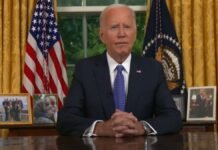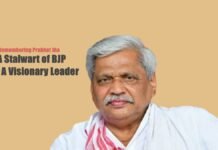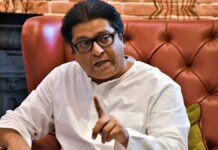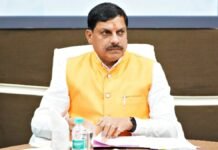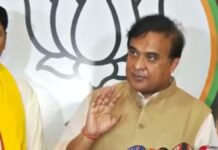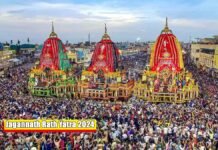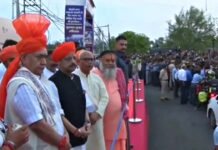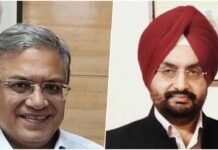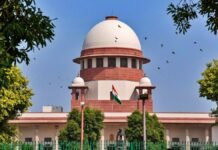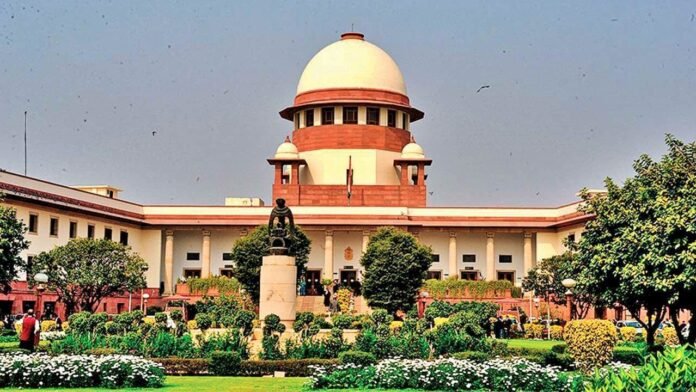
New Delhi: The year 2023 was a remarkable one for the Supreme Court of India, as it delivered several major judgments on various issues of national and constitutional importance, including the validity of the Centre’s decisions regarding demonetization, abolition of Article 370, and denial of legal recognition to gay marriage. The apex court also set a record by disposing of more than 50,000 cases in a year, under the leadership of Chief Justice D.Y. Chandrachud.
Demonetisation and Article 370
The Supreme Court upheld the Centre’s decision to demonetise Rs 500 and Rs 1000 currency notes in November 2016, as a measure to curb black money, corruption, and terrorism. The court rejected the petitions challenging the legality and constitutionality of the decision and said that it was within the competence and discretion of the government.
The Supreme Court also upheld the Centre’s decision to abrogate Article 370 of the Constitution, which granted special status and autonomy to Jammu and Kashmir. The court said that the decision was by the constitutional scheme and did not violate any fundamental rights. However, the court also directed the Centre to restore the statehood of Jammu and Kashmir, which was bifurcated into two Union Territories in August 2019, at the earliest, and to conduct state assembly elections by September 30, 2024.
Delhi Government and Election Commission
The Supreme Court ruled that the Delhi government has legislative and executive power over all matters except public order, police, and land in the national capital and that the Lieutenant Governor is bound by the aid and advice of the elected government. The court said that the constitutional status of Delhi is different from that of other Union Territories and that the Centre cannot interfere in its administration.
The Supreme Court also ruled that the Chief Election Commissioner and Election Commissioners will be appointed by the President on the advice of a committee comprising the Prime Minister, the Leader of the Opposition in the Lok Sabha, and the Chief Justice of India. The court said that this would ensure the independence and impartiality of the Election Commission, which is a constitutional body entrusted with the conduct of free and fair elections.
However, the Centre enacted a new law and amended the Government of National Capital Territory of Delhi (GNCTD) Act, which changed the appointment process of the Election Commission members and took away the control over services from the Delhi government. The Centre excluded the Chief Justice of India from the committee to select the Election Commission members and gave the power to transfer and post officers to the Lieutenant Governor. The Delhi government challenged the new law and the amended Act in the Supreme Court, which is currently hearing the matter.
Appointment and Transfer of Judges
The Supreme Court and the Centre were engaged in a tug-of-war over the appointment and transfer of judges to the constitutional courts on the recommendation of the collegium, which is a body of senior judges headed by the Chief Justice of India. The Centre delayed or rejected some of the recommendations made by the collegium, citing reasons such as seniority, merit, regional representation, and national security.
The Supreme Court functioned with the full strength of 34 judges for most of the year, as the Centre approved 14 recommendations for the apex court judge posts promptly. However, the Centre also transferred some of the judges to other high courts without their consent, which raised questions about the independence of the judiciary. The Supreme Court expressed its displeasure over the Centre’s actions and urged it to respect the collegium’s decisions.
Gay Marriage and Rights
The Supreme Court dashed the hopes of the gay community for legal recognition of their marriages and rights, such as adoption, enrollment as parents in schools, opening bank accounts, and inheritance. The court delivered a split verdict on a batch of petitions seeking these reliefs and said that the issue is up to the discretion of the Parliament.
The court said that the 2018 judgment, which decriminalized consensual homosexual acts, did not confer any positive rights on the gay community, and that the court cannot legislate on matters of personal law and policy. The court said that the Parliament has the power to enact laws to recognize and regulate gay marriage and rights and that the court cannot interfere in its domain.
Sanjay Kumar Mishra’s Service Extension
The Supreme Court criticized the Centre for its repeated extension of service to Sanjay Kumar Mishra as the Enforcement Directorate (ED) chief, terming it “illegal”. The court said that the Centre violated the court’s 2019 order, which fixed a two-year tenure for the ED chief and barred any extension.
The court said that the Centre’s actions undermined the autonomy and credibility of the ED, which is a premier agency dealing with economic offenses and money laundering. The court said that the Centre cannot use its executive power to override the court’s order and that the ED chief cannot continue in office beyond his fixed tenure.
Bhopal Gas Tragedy and Adani Case
The Supreme Court rejected the Centre’s curative petition seeking an additional Rs 7,844 crore from the successor companies of Union Carbide Corporation to compensate the victims of the 1984 Bhopal gas tragedy, which killed thousands of people and injured lakhs. The court said that the Centre’s petition was not maintainable, as it did not raise any new grounds or arguments that were not considered by the court earlier.
The court also reserved its verdict on a PIL on the Adani-Hindenburg dispute over allegations of stock price manipulation. The PIL alleged that the Adani Group artificially inflated its share prices by creating shell companies and siphoning off funds. The Adani Group denied the allegations and said that they were part of a malicious campaign to tarnish its reputation. The court heard the arguments of both sides and said that it would pronounce its judgment soon.
Governors’ and Speakers’ Powers
The Supreme Court scrutinized the discretionary powers of the state governors and assembly speakers in approving bills and deciding on disqualification petitions against MLAs in Maharashtra, Tamil Nadu, Punjab, Kerala, and Telangana. The court said that the governors and speakers are constitutional functionaries who are expected to act impartially and objectively and that they cannot act arbitrarily or whimsically.
The court said that the governors cannot withhold their assent to bills passed by the state legislatures indefinitely and that they have to give reasons for their decision. The court also said that the speakers cannot delay or defer the decision on disqualification petitions against MLAs and that they have to follow the rules and procedures laid down by the court.
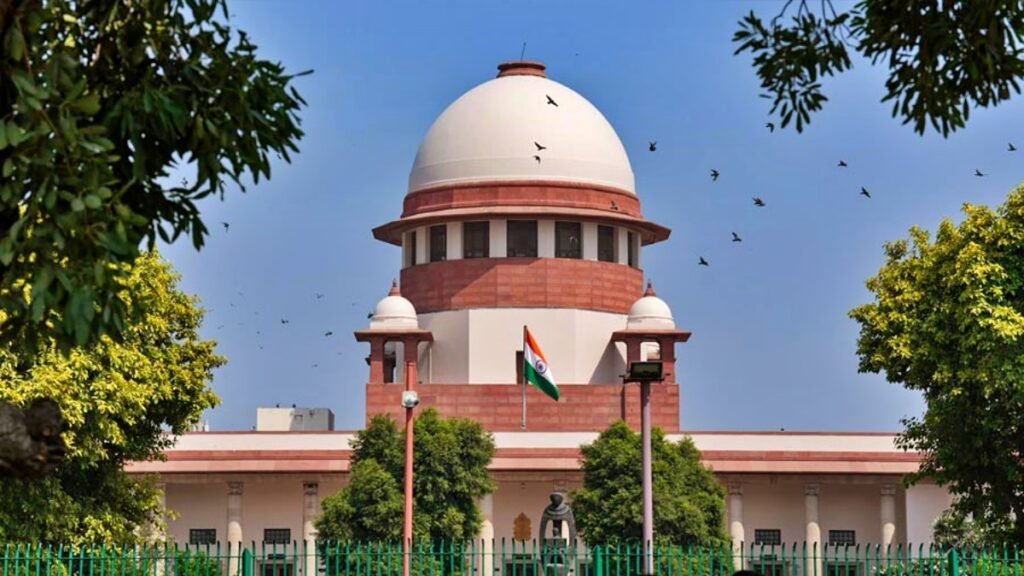
Shiv Sena vs Shiv Sena
The Supreme Court ruled that it cannot reinstate the Uddhav Thackeray-led Shiv Sena government in Maharashtra, which was dismissed by the governor in February 2023, after a split in the party. The court said that the governor’s decision was based on the floor test conducted in the assembly, which showed that the Thackeray government had lost the majority.
The court said that the rival faction of Shiv Sena, led by Aaditya Thackeray, had proved its majority with the support of the BJP and some independents and that the governor had rightly invited them to form the government. The court said that it could not interfere in the political affairs of the state and that the only remedy for the Thackeray faction was to seek a fresh mandate from the people.







